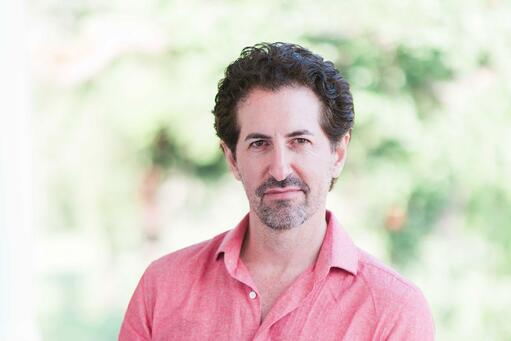Moran Cerf

With nearly 90 academic publications, over 50 students, half a dozen patents, and nearly 10 million online followers, Moran Cerf is one of the leaders in the research and applications of neuroscience in business.
Cerf holds a PhD in neuroscience (Caltech), an MA in Philosophy, and a BSc in Physics (Tel-Aviv University. He has taught leadership and marketing at NYU and the Kellogg School of Management, where he was a professor of neuroscience and business for nearly a decade.
In his work, Prof. Cerf helps individuals and businesses harness current knowledge on the brain to improve their thinking, leadership, personal development, decision-making, and customer engagement.
Broadly, his academic research uses methods from neuroscience to understand the underlying mechanisms of our psychology, behavior changes, emotion, decisions and dreams. Specifically, his research focuses on identifying what makes content engaging and how to create narratives that capture our attention.
In his acclaimed research Prof. Cerf studies patients undergoing brain-surgery by recording the activity of individual nerve cells using electrodes implanted in the patient's brain. Using this method, Prof. Cerf addresses questions such as: "How are conscious percepts formed in our brain?", "How can we control our emotions?" and “How can we make content that is engaging for the brain?"
Cerf published papers in academic journals such as Nature and the Journal of Neuroscience, as well as popular science journals such as Scientific American Mind, Wired, New Scientist and more. He has published several books, including the recent: "Brain Imaging: An Illustrated Guide to the Future of Neuroscience”, and his research has been portrayed in numerous media and cultural outlets such as CNN, BBC, Bloomberg, NPR, Time, MSNBC, Netflix Explained, PBS Nova, and dozens of others. He has been featured in venues such as the Venice Art Biennial and China's Art, Science and Technology association, and has contributed to magazines such as Forbes, The Atlantic, Inc., and others. He has made much of his research accessible to the public via his public talks at PopTech, TED, TEDx ("most TEDx talks worldwide”, with 13 TED/TEDx talks), Google Zeitgeist, DLD, etc., gathering millions of views and a large following.
Cerf is the beneficiary of several awards and grants, including the Instructional Improvement Grant and the prestigious President scholarship for excellence. He was recently named one of the "40 leading professors below 40".
Prior to his academic career, Prof. Cerf spent nearly a decade in industry, holding positions in cyber-security (as a hacker), pharmaceutical, telecom, fashion, software development, and innovations research. Currently, he is on the board of a number of neuro-tech companies (Nervanix, X-Trodes, BestFit) and the Co-founder of ThinkAlike. He is also the founder of the non-profit B-Cube which uses neuroscience to help society. He consulted to companies such as Ferrari, Viacom, TransUnion, Nielsen, Founders Pledge, and the U.S. Government.
In line with his research on engagement, Prof. Cerf is a 4 times U.S. National story-telling champion (at the 'Moth' story-telling competition) and a regular consultant to Hollywood films and TV shows (CBS' “Bull”, “Limitless”; USA Network's “Falling Water”, and more). Cerf is also the Alfred P. Sloan professor at the American Film Institute (AFI), where he teaches an annual screenwriting class.
Most importantly, he is left handed.
Featured Research
Participating in a climate prediction market increases concern about global warming
Modifying attitudes and behaviours related to climate change is difficult. Attempts to offer information, appeal to values and norms or enact policies have shown limited success. Here we examine whether participation in a climate prediction market can shift attitudes by having the market act as a non-partisan adjudicator and by prompting participants to put their ‘money where their mouth is’.